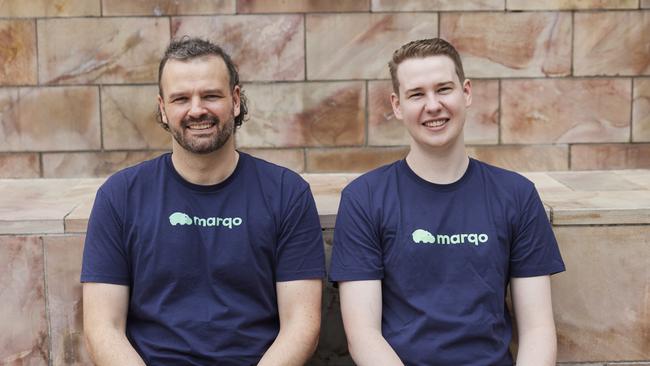Blackbird reveals where the next big money-maker in AI is and where it’s investing its cash
Venture capital fund Blackbird is investing millions of dollars in companies which supply the key infrastructure to support the artificial intelligence boom.

Venture capital fund Blackbird says it is investing millions of dollars in companies supplying essential infrastructure to support the artificial intelligence boom rather than the large-language model providers.
ChatGPT maker OpenAI and hyperscalers like Microsoft, Google and Meta are jostling for position in the AI race, releasing a series of updates for their AI tools, which have become embedded in almost all parts of the economy.
But Blackbird partner Tom Humphrey said that only told part of the story when it comes to the broadscale adoption of AI, and the much-hyped technology needed “scaffolding” to support its rapid update.
To this end, Blackbird has invested in two Australian companies, Marqo and Redactive, that are providing the infrastructure needed to ensure AI lives up to its promise of turbocharging flatlining productivity across the economy.

“There is a lot of infrastructure you need to wrap around a LLM to achieve AI outcomes,” Mr Humphrey said.
“Launching an AI application, you are thinking about a lot of things beyond just ‘which LLM should I use?’ You are thinking about fine tuning, prompt engineering, model optimisers and evaluation, deployment and monitoring, data pipelines and storage, data labelling, vector databases, privacy, data security, compliance and more.
“We call this the AI scaffolding. If the LLM is the foundation of the house, these infrastructure pieces are the bricks and mortar that build it up. This is a key area of interest to us at Blackbird and one that we’re investing more and more in.”
Mr Humphrey said Australia was “punching above its weight” in creating tools aimed at capitalising on the AI boom.
“Canva was the first company globally to scale generative images to 100 million users, and this year we welcomed our first two homegrown foundational LLMs from Leonardo AI and Harrison AI, a huge milestone that most countries can’t claim,” he said.
“(But) the market for ‘generalised’ LLMs is largely accounted for now by the likes of Open AI, Google, Meta and Anthropic.
“It is a market where advantage is spoken in the language of large cheque books and GPU clusters, and you don’t want to enter without a clear right to win.”
This is where the scaffolding comes in. One of these companies providing such infrastructure is Melbourne-based start-up Redactive, which aims to conquer AI’s next frontier: internal data leaks.
Most companies have moved to lock down their data and prevent embarrassing breaches – like when a Samsung engineer uploaded sensitive internal source code to ChatGPT. But the rise of enterprise-grade AI tools does not prevent data being inadvertently shared with employees who don’t have authority to access it.

Redactive co-founder and former Atlassian product manager Andrew Pankevicius said it was crucial that companies have clear permissions embedded in their AI platforms; a service which Redactive provides.
“(At a company) you probably have got lots of files that are locked down that you can’t see and you have files that you do have access to. Tools like Amazon Q, Glean, (Atlassian’s) Rovo make sure when you’re accessing one of those files, that you can access it before it’s served up to an AI tool,” he said.
“What we’re doing is actually going deeper … because a lot of those Google Drive environments have lots of documents that are misconfigured or misspermissioned is a way of thinking about it.
“So there’s John from the HR team who’s created a personnel plan and because he’s got it in seven different folders, no one would naturally find it.
“But someone using those AI tools, asking a question: ‘hey tell me about recent changes across the company?’ Well, John’s HR plan is going to pop up and say ‘we’re making these personnel changes in the next quarter’. That’s frightening. It’s like this known unknown that exists inside an enterprise environment.”
Redactive raised $11.5m in seed funding from Blackbird, Atlassian’s venture capital arm, early Canva investor Felicis Ventures and US automation software company Zapier, earlier this year.
Marqo is another Melbourne-founded start-up which has received backing from Blackbird.
The company founded by two former Amazon employees, Tom Hamer and Jesse Clark, develops vector databases crucial for AI and helps large-language models find relevant documents.
Mr Hamer said the company helped AI models retrieve up-to-date information as well as help companies build better search functions within their organisations.






To join the conversation, please log in. Don't have an account? Register
Join the conversation, you are commenting as Logout